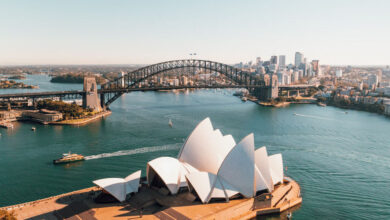Saudi Arabia is a country located in the Middle East, bordered by the Red Sea to the west and the Persian Gulf to the east. It is the largest country in the Arabian Peninsula and covers an area of over 2 million square kilometres.
The Kingdom of Saudi Arabia was founded in 1932 by King Abdulaziz Al Saud, and today, the country is an absolute monarchy, with King Salman bin Abdulaziz Al Saud serving as the current head of state. Despite being an absolute monarchy, the country has undergone significant reforms in recent years, with the government introducing measures aimed at modernizing the country and improving the quality of life for its citizens.
One of the most significant aspects of Saudi Arabia is its abundant oil resources. The country is home to the world’s largest oil reserves and is one of the largest oil exporters globally. The oil industry plays a crucial role in the country’s economy, accounting for over 90% of its export revenues and approximately 45% of its Gross Domestic Product (GDP).
In recent years, the government has implemented several initiatives aimed at diversifying the country’s economy and reducing its dependence on oil exports. This includes investing in renewable energy, developing new industries such as tourism, and promoting small and medium-sized enterprises.
The population of Saudi Arabia is estimated to be around 34 million, with a majority of the population residing in urban areas. The country is home to a diverse range of ethnic and religious groups, with the majority of the population being Sunni Muslim. The country is also home to the two holiest sites in Islam, Mecca and Medina, which attract millions of pilgrims each year for the Hajj and Umrah pilgrimages.
Despite its wealth, Saudi Arabia has faced several challenges in recent years. The country has faced criticism for its human rights record, with issues such as the restriction of women’s rights, the lack of political freedoms, and the strict interpretation of Islamic law is widely condemned. The government has taken steps to address these concerns, such as allowing women to drive and granting them greater access to employment opportunities, but more needs to be done to ensure that human rights are respected and upheld in the country.
In conclusion, Saudi Arabia is a country with a rich history and cultural heritage, and its abundant oil resources have made it one of the world’s leading economies. However, the country faces numerous challenges, including the need to diversify its economy, address human rights concerns, and modernize its society. Despite these challenges, Saudi Arabia remains an important player on the global stage and is poised to play a significant role in shaping the future of the region and the world.
Best Time to Visit Saudi Arabia
The best time to visit Saudi Arabia depends on personal preferences and the specific location you plan to visit.
The country is mostly desert with hot temperatures throughout the year, with temperatures reaching extremely high levels in the summer months of June to August. Winter months can offer milder temperatures, making them the most popular time for visitors.
It’s also important to consider any cultural events that may be happening during your planned trip, such as the Hajj pilgrimage or the Islamic month of Ramadan, when travel restrictions may be in place.
Average Temperature in Saudi Arabia
Saudi Arabia has a predominantly desert climate, with hot temperatures and low humidity throughout much of the year. The average temperature in the country varies greatly depending on the region, with the interior and southern regions being the hottest and the mountainous regions being cooler.
In the capital city of Riyadh, the average temperature ranges from 10°C to 25°C (50°F to 77°F) throughout the year. The warmest months are from May to September, with average temperatures ranging from 30°C to 40°C (86°F to 104°F). The coolest months are from December to February, with average temperatures ranging from 10°C to 20°C (50°F to 68°F).
In the coastal city of Jeddah, the average temperature ranges from 20°C to 30°C (68°F to 86°F) throughout the year. The warmest months are from June to August, with average temperatures ranging from 35°C to 40°C (95°F to 104°F). The coolest months are from December to February, with average temperatures ranging from 20°C to 25°C (68°F to 77°F).
In the southern region of Asir, temperatures are cooler due to its mountainous terrain, with the average temperature ranging from 5°C to 30°C (41°F to 86°F) throughout the year.
Credits
Photo: Ushaiqer heritage village, Saudi Arabia. Photo by: Abdulrhman Alkhnaifer on Unsplash



